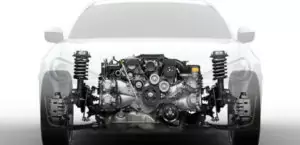The 2.0-liter Nissan CD20 diesel engine was produced by the company from 1990 to 2000 and was installed on such well-known models of the concern as Almera, Primera, Pulsar and Avenir. A modification of this unit with an electronic high-pressure fuel pump was installed on Bluebird under the index CD20E.
The CD series also includes internal combustion engines: CD17 and CD20T.
The engine was installed on:
- Nissan AD 2 (Y10) in 1997 – 1998;
- Nissan Almera 1 (N15) in 1995 – 2000;
- Nissan Avenir 1 (W10) in 1990 – 1998;
- Nissan Primera 1 (P10) in 1992 – 1996;
- Nissan Pulsar N15 in 1995 – 2000;
- Nissan Serena C23 in 1991 – 1993;
- Nissan Sunny 3 (B13) in 1993 – 1998;
- Nissan Wingroad Y10 in 1997 – 1998.
Specifications
| Production years | 1990-2000 |
| Displacement, cc | 1973 |
| Fuel system | vortex chamber |
| Power output, hp | 75 |
| Torque output, Nm | 132 |
| Cylinder block | cast iron R4 |
| Block head | aluminum 8v |
| Cylinder bore, mm | 84.5 |
| Piston stroke, mm | 88 |
| Compression ratio | 22.2 |
| Features | no |
| Hydraulic lifters | no |
| Timing drive | belt |
| Phase regulator | no |
| Turbocharging | no |
| Recommended engine oil | 10W-30 |
| Engine oil capacity, liter | 5.7 |
| Fuel type | diesel |
| Euro standards | EURO 1/2 |
| Fuel consumption, L/100 km (for Nissan Avenir 1992) — city — highway — combined |
8.1 5.5 6.4 |
| Engine lifespan, km | ~275 000 |
| Weight, kg | 180 |
Disadvantages of the CD20 engine
- You can’t call the fuel system capricious, but it really doesn’t like bad fuel;
- Most often, the owners of such cars are struggling with airing the cooling system;
- If overheating is allowed, the minimum will pierce the gasket, and often the head will crack;
- The timing belt usually runs no more than 80,000 km, and when it breaks, the valve always bends;
- The compression in the cylinders decreases to a run of 250,000 km, get ready for a major overhaul.






